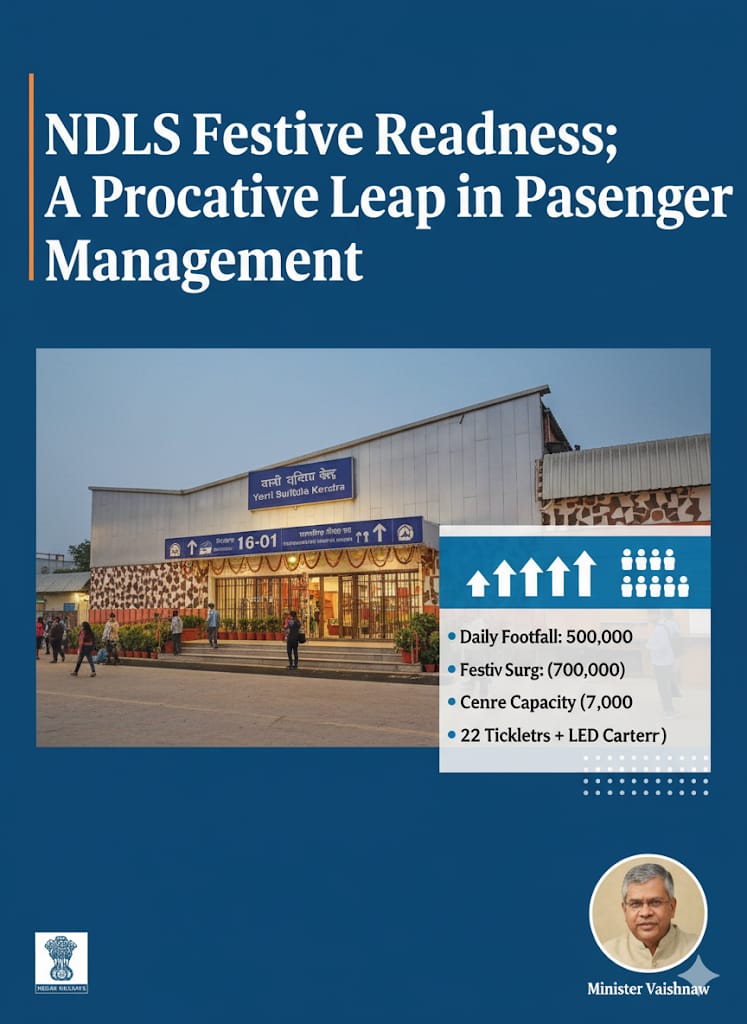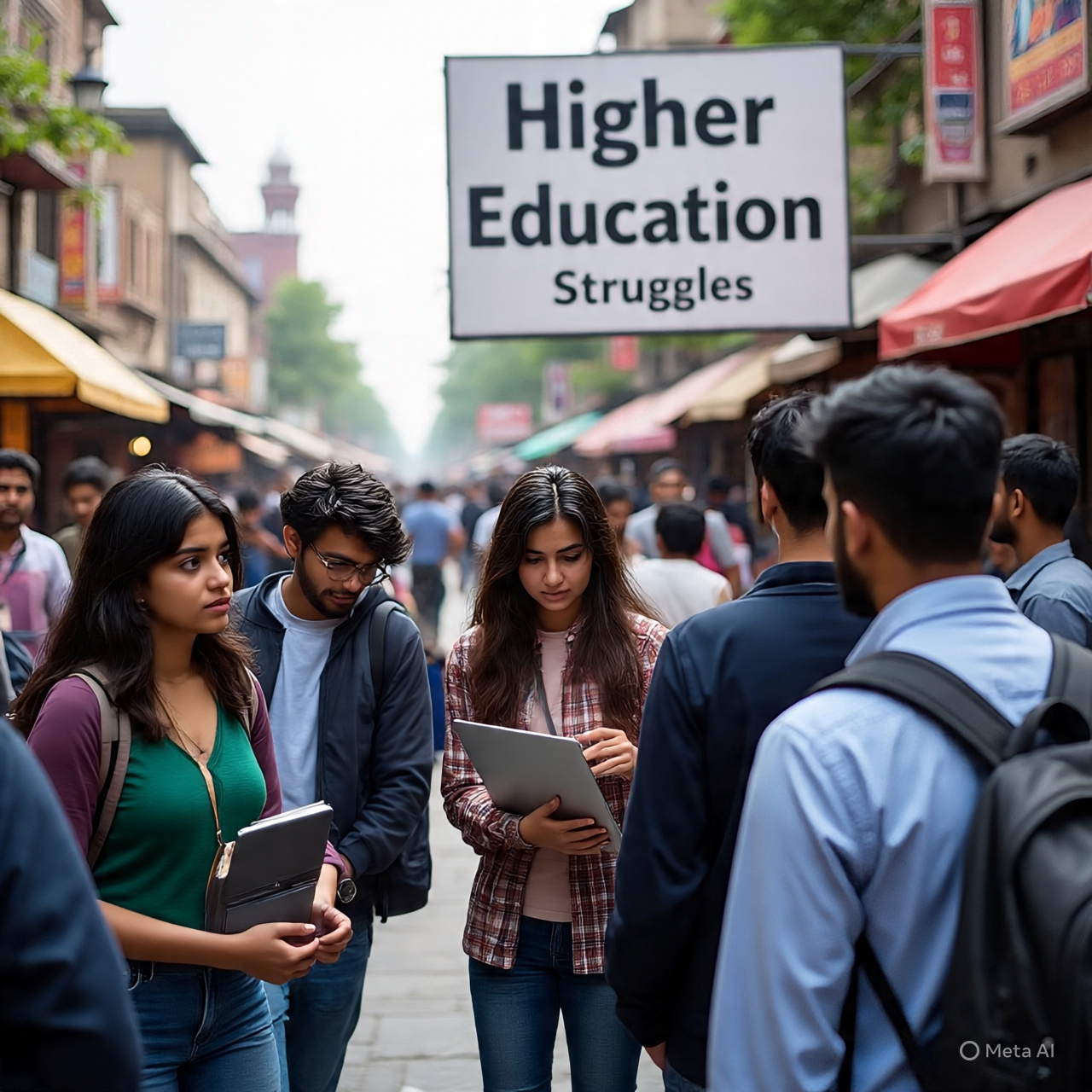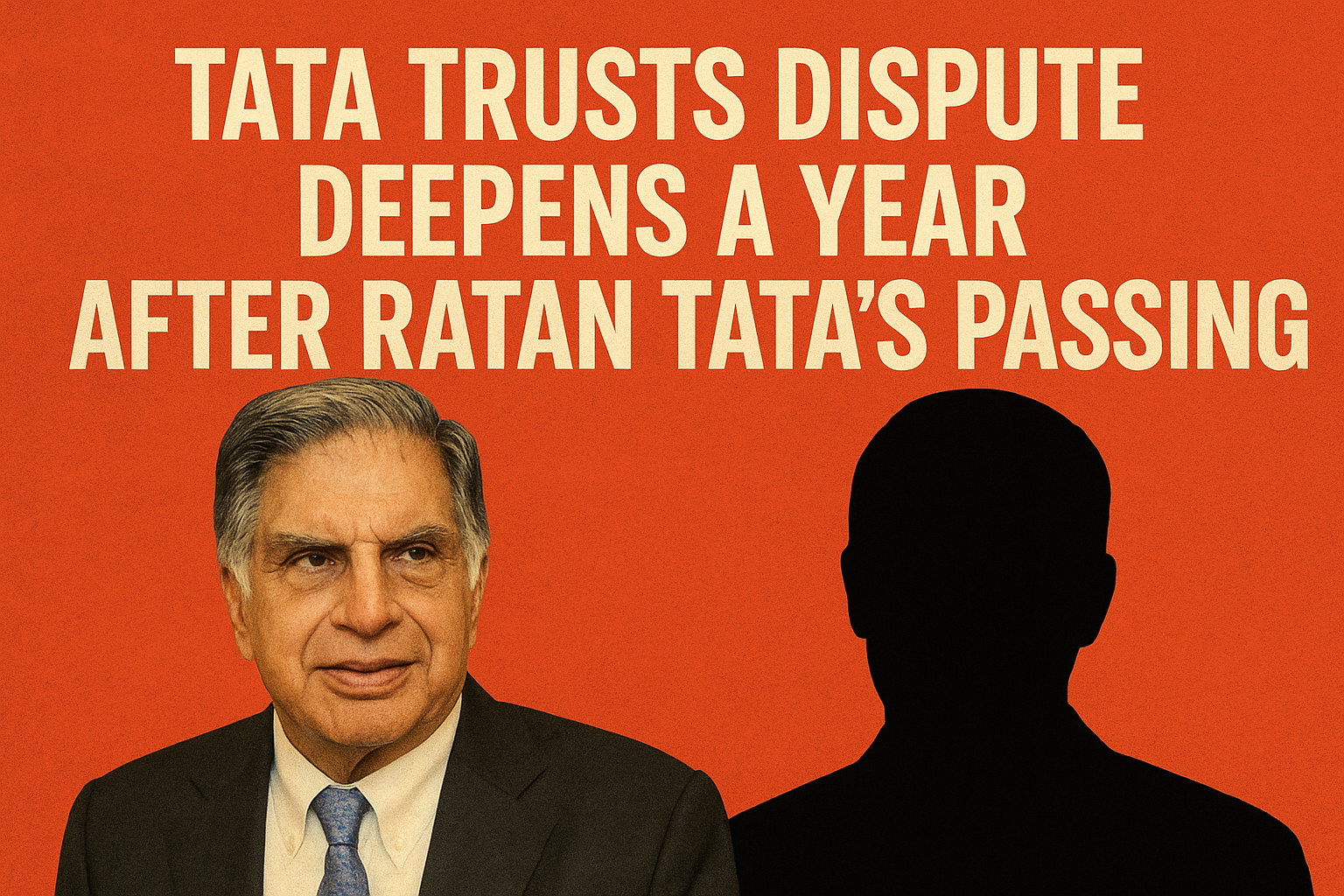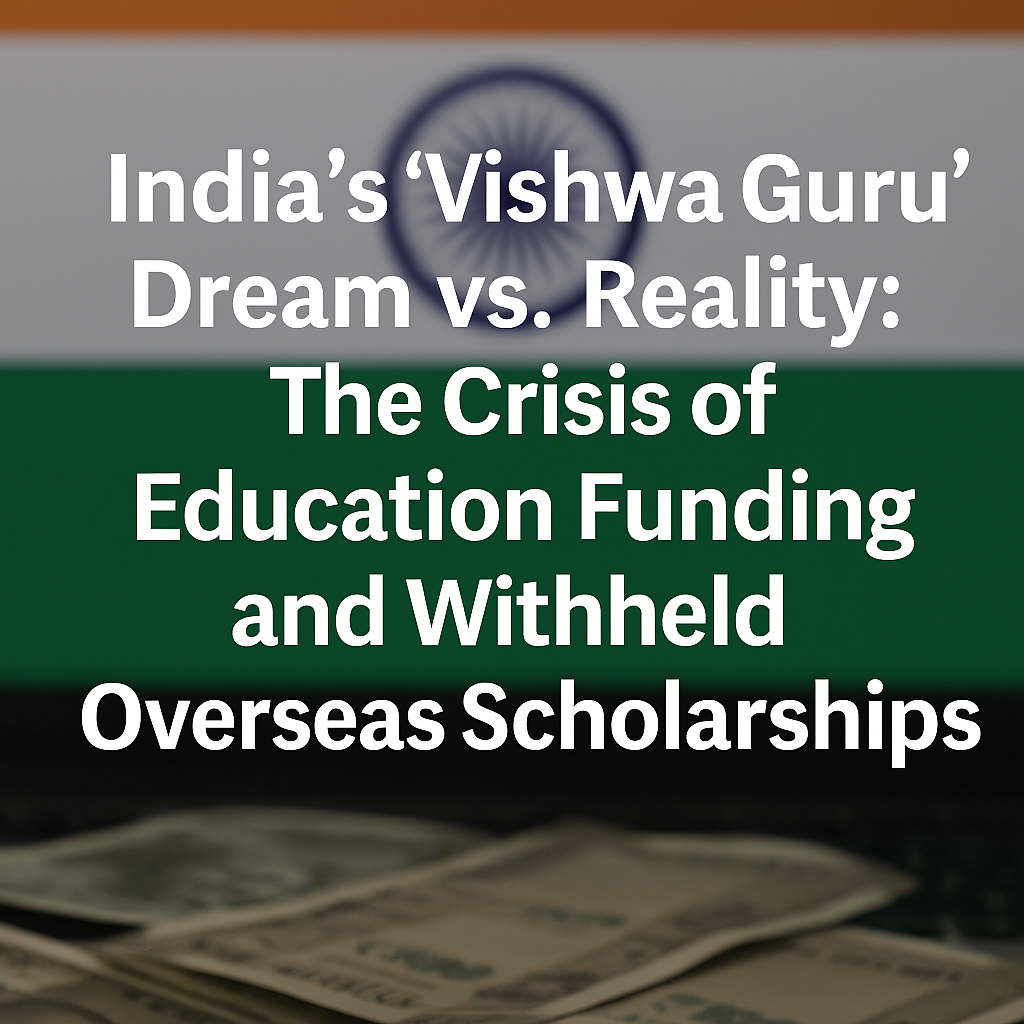
India often dreams aloud of becoming a Vishwa Guru—a global knowledge leader. From international summits to domestic speeches, the rhetoric of educational excellence and global leadership has grown louder. But behind the slogans lies a grimmer reality, one that raises tough questions about national priorities. A recent development has laid bare this contradiction: the Ministry of Social Justice and Empowerment has withheld overseas scholarships for meritorious students due to “inadequate funds.”
This move, which affects 66 out of 100 selected candidates under the National Overseas Scholarship (NOS) scheme for the 2023–24 academic year, reflects more than a temporary budgetary issue—it underlines a chronic neglect of educational investment, especially for India’s most marginalised communities.
The Immediate Crisis: NOS Scholarships Withheld
According to a report published by The Hindustan Times, only 34 out of the 100 candidates have been issued award letters so far. The rest remain in limbo despite being selected between March and April 2024.
These are not ordinary students. NOS scholarships are awarded to individuals from Scheduled Castes (SC), Denotified Nomadic Tribes (DNT), landless agricultural labourers, and other disadvantaged groups. These scholarships open doors to the world’s top universities and fund Master’s and PhD programmes, offering up to $16,920 per annum for tuition and living expenses.
The government selects candidates through a merit-based ranking system. The top 40 have already received provisional letters, while candidates ranked 41 to 100 are being told their fate is “subject to availability of funds.” This uncertainty has created a cruel paradox: students are being asked to secure admission to foreign universities, but may not receive the promised funding.
One student from Delhi, who secured admission in a UK-based university, lamented, “I feel stuck and confused. We have all worked hard to get on this list. Without issuing provisional letters to all 100 students, I am not able to plan my future.”
The Numbers Don’t Lie: Budget vs. Commitment
What makes the situation more ironic is that the overall budget for the NOS was actually increased. As per the Union Budget 2024–25, the allocation for NOS rose to ₹130 crore, up 36.84% from ₹95 crore in 2023–24. Yet, by December 2024, the ministry had already disbursed only ₹52.29 crore, barely enough for 80 beneficiaries for the entire academic year.
This discrepancy begs the question—where is the money going? And why is the increase in allocation not translating into benefits on the ground?
Earlier, a similar disruption had occurred with the Dr. Ambedkar Central Sector Scheme of Interest Subsidy and the Maulana Azad National Fellowship, which were both stalled. The Ministry’s letter reportedly cited delays and procedural hurdles for the NOS crisis, but critics argue that such “hurdles” are often symptoms of deeper institutional apathy toward funding education for backward sections.
The Broader Issue: India’s Low Education Spending
This fiasco is a reflection of a deeper and ongoing problem—India’s underwhelming public investment in education.
According to the latest government data:
- India spends approximately 2.9% of its GDP on education, far below the 6% benchmark recommended by the Kothari Commission (1966) and reiterated in the National Education Policy (NEP) 2020.
- Countries like Brazil (6.2%), South Africa (6.6%), and even Nepal (5.1%) invest a significantly larger portion of their GDP on education.
This underfunding becomes particularly stark when juxtaposed with India’s ambitious claims of becoming a knowledge economy or digital powerhouse.
The NEP 2020 had promised a revolution in higher education, focusing on access, equity, and global exposure. Yet, the NOS debacle shows that vision is not backed by financial planning.
Global Image vs. Domestic Injustice
At global forums, India proudly asserts its rising status as an education hub and a promoter of knowledge diplomacy. Institutions like IITs and IIMs are being pitched abroad. But what good is international prestige when its own marginalised students are left hanging due to insufficient funds?
Even as the Prime Minister travels across continents forging academic partnerships, students from SC, ST, and minority backgrounds are forced to defer dreams because their country cannot or will not fund them.
“It is an issue with the Cabinet Committee on Economic Affairs,” an unnamed official reportedly said. “We have the scholarship money in the scheme. Now we need a green signal from above.”
That green signal, it seems, is lost in bureaucratic fog.
The Emotional Toll: Futures on Hold
The psychological toll on affected students is immeasurable. Many had already secured university admissions, taken education loans, or resigned from jobs in the hope of a funded international degree. Now they are left in academic limbo.
“I don’t know if I should defer my admission or forgo it altogether,” said one student, visibly distressed.
For marginalised communities, access to overseas education isn't just a personal achievement—it’s a rare leap out of generational poverty. Denying them this opportunity isn’t just administrative failure—it’s social injustice.
Expert and Public Reaction
Social reformers, academics, and political leaders have all criticised the move.
Raju Kendre, founder of the Eklavya India Foundation, called the decision "inhumane" and "a betrayal of India’s constitutional values." He stated, “On one hand, we say we are investing in human capital. On the other, we deny bright Dalit and tribal scholars—the future of this nation—their rightful opportunity.”
Opposition leaders have also slammed the government. Congress MP Manish Tewari tweeted, “India wants to be a Vishwa Guru, but cannot even fund 100 scholarships.”
Aligning Vision with Resources
If India truly wants to be a global educational leader, it must start with some basic housekeeping:
- Ensure timely disbursal of all approved scholarships.
- Create a buffer fund for emergency releases under critical schemes like NOS.
- Raise education spending to at least 6% of GDP, as consistently promised.
- Simplify approval mechanisms so students are not victims of bureaucratic inertia.
Above all, India must ask itself a hard question: Is “Vishwa Guru” just a slogan, or a goal we are truly committed to? If the latter, then no deserving student—especially from historically marginalised groups—should ever be denied education for lack of funds.
Until then, we remain a nation of great promises and broken dreams.




.jpeg)
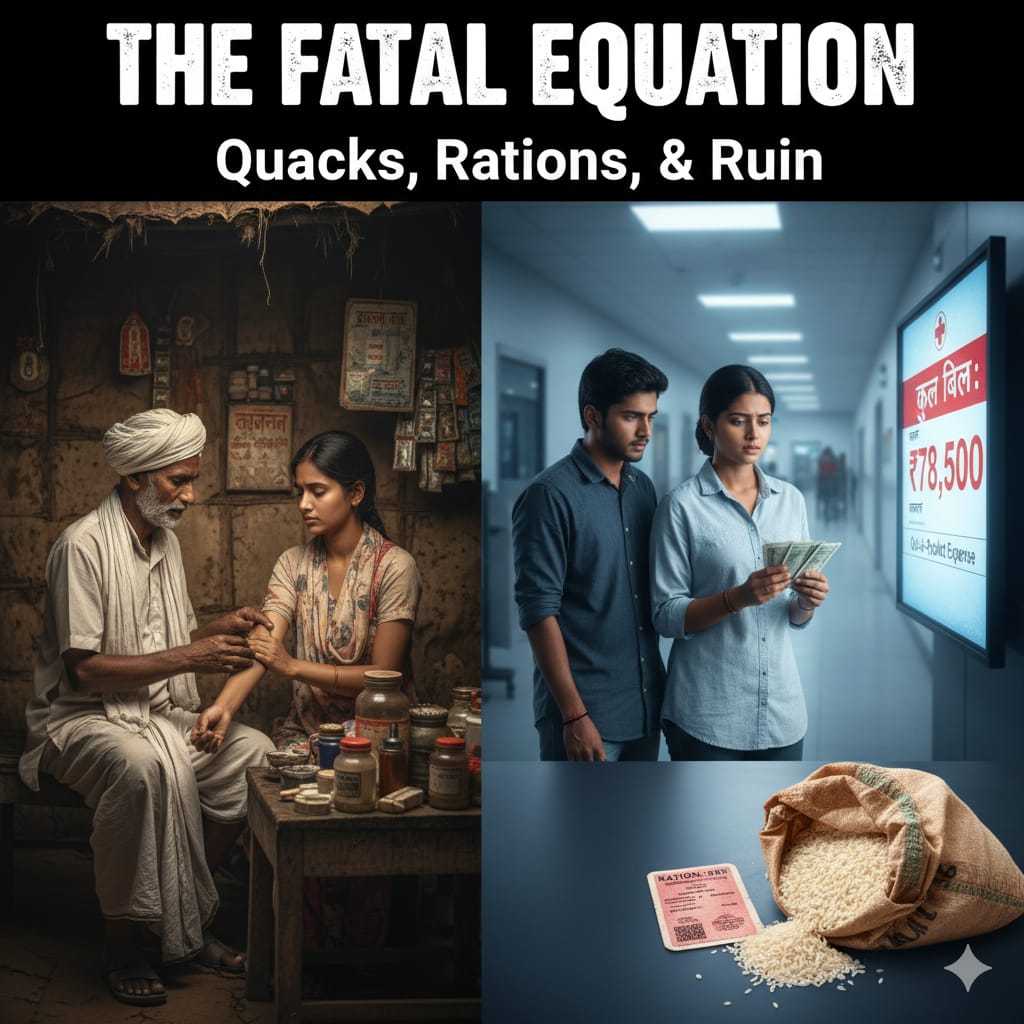
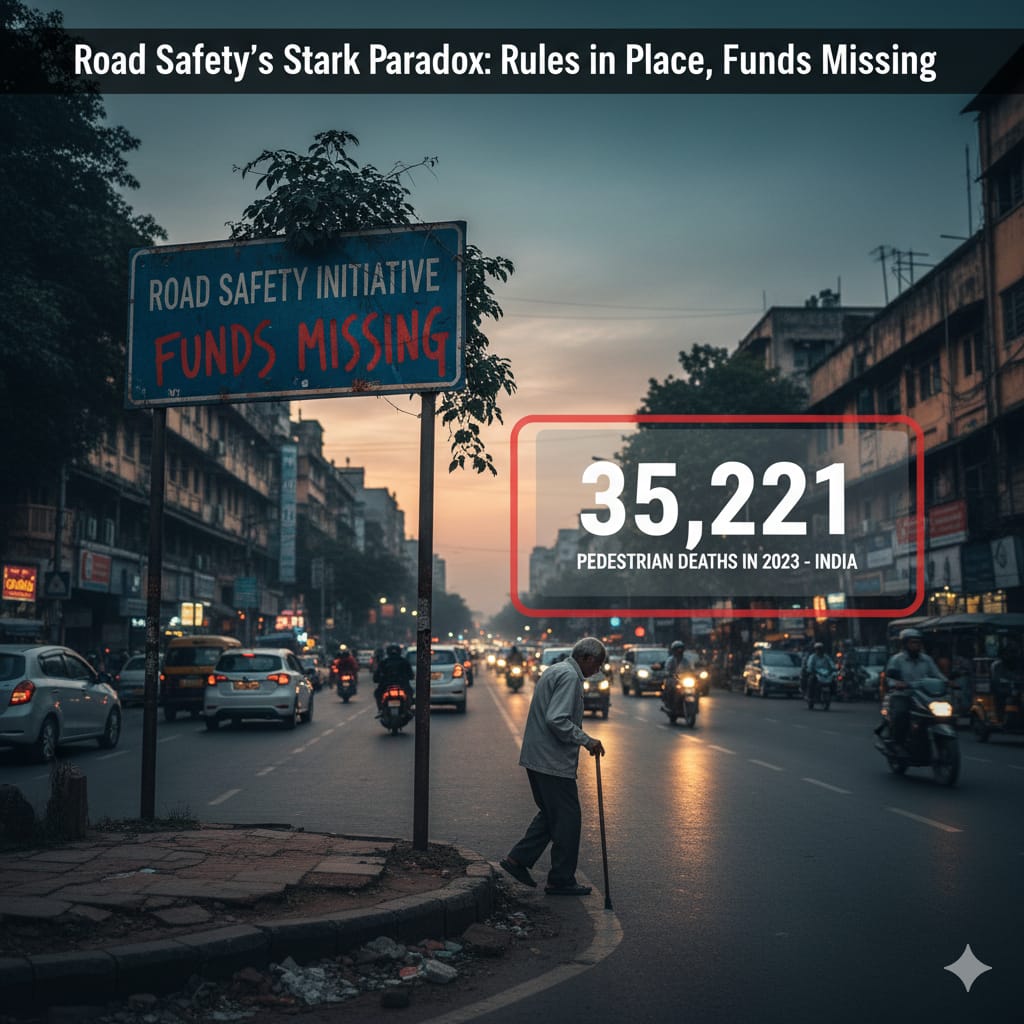
.jpeg)

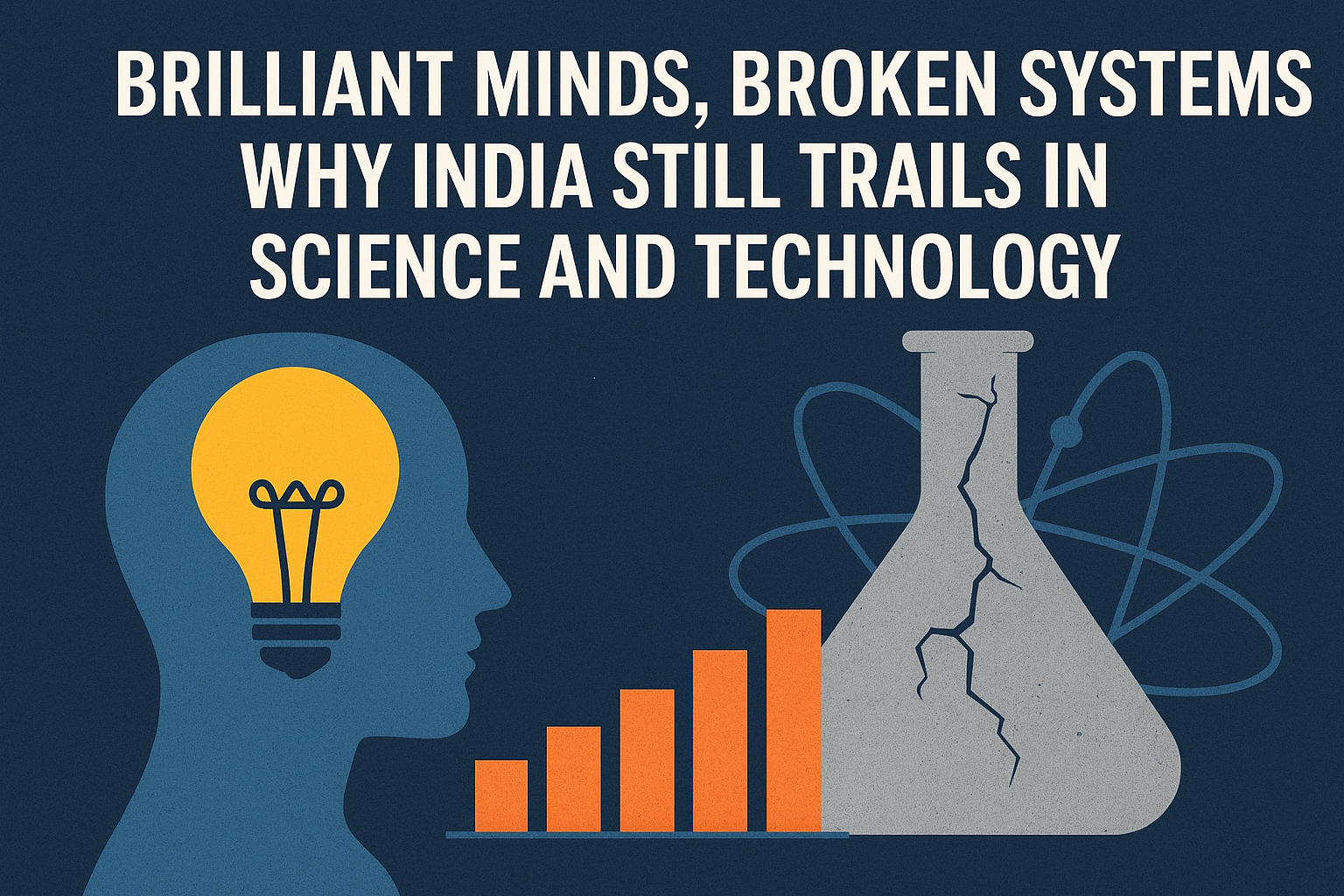


.jpeg)
